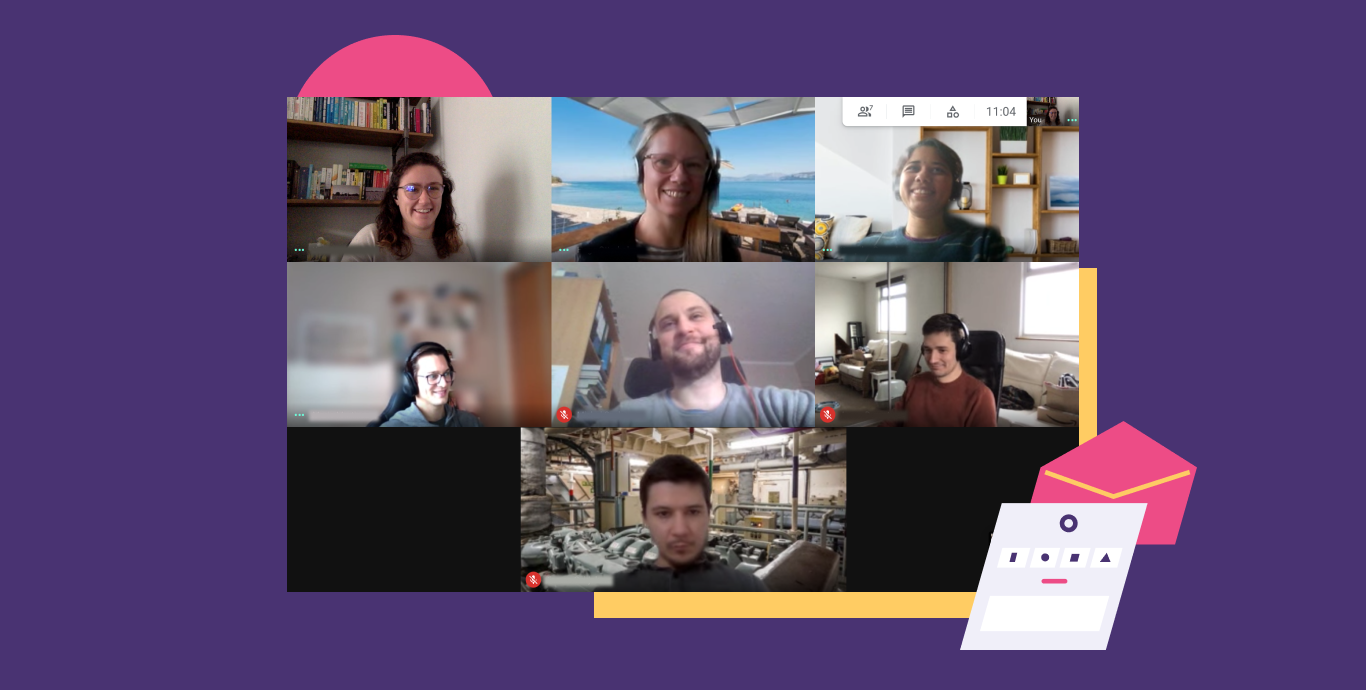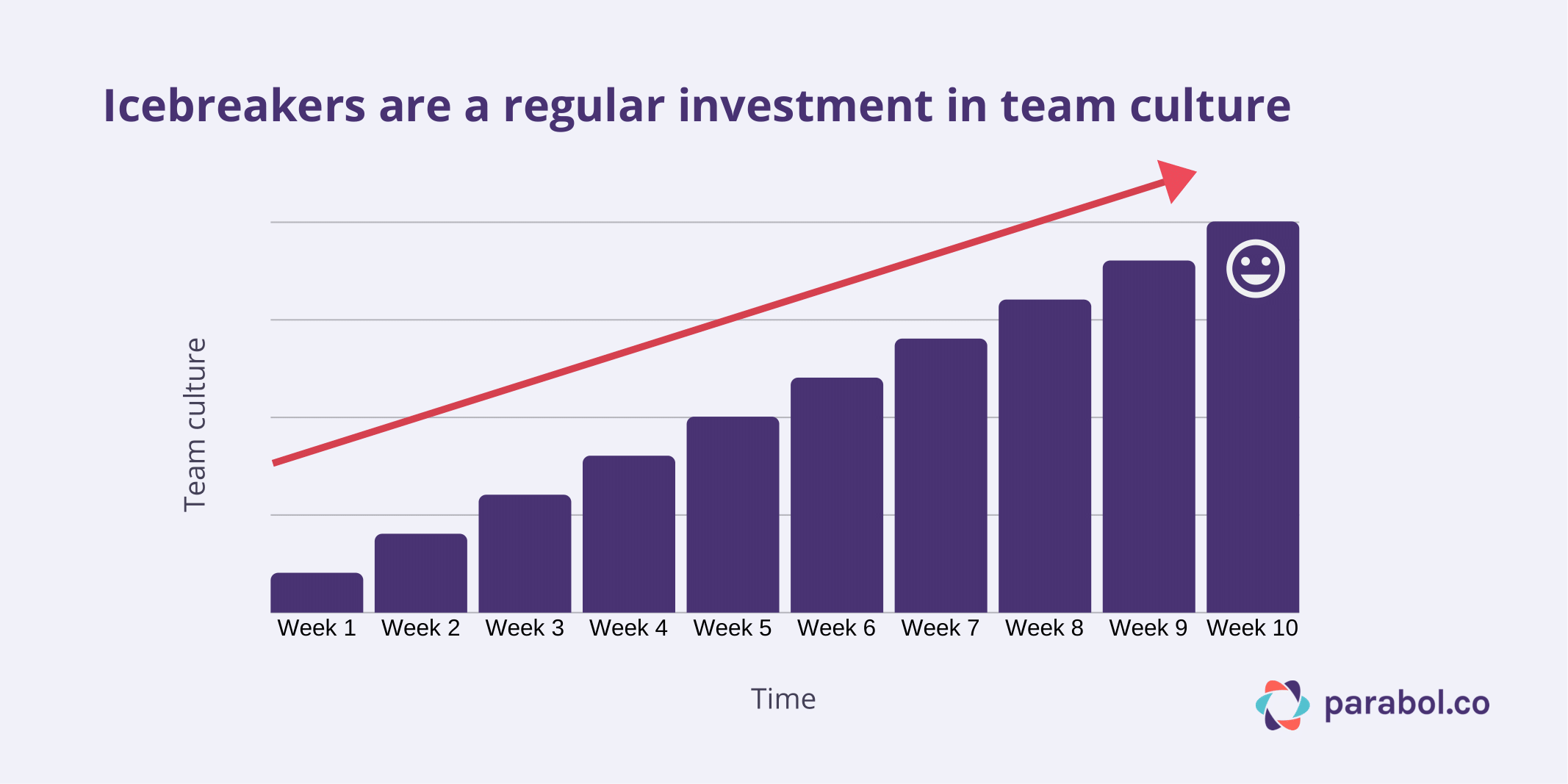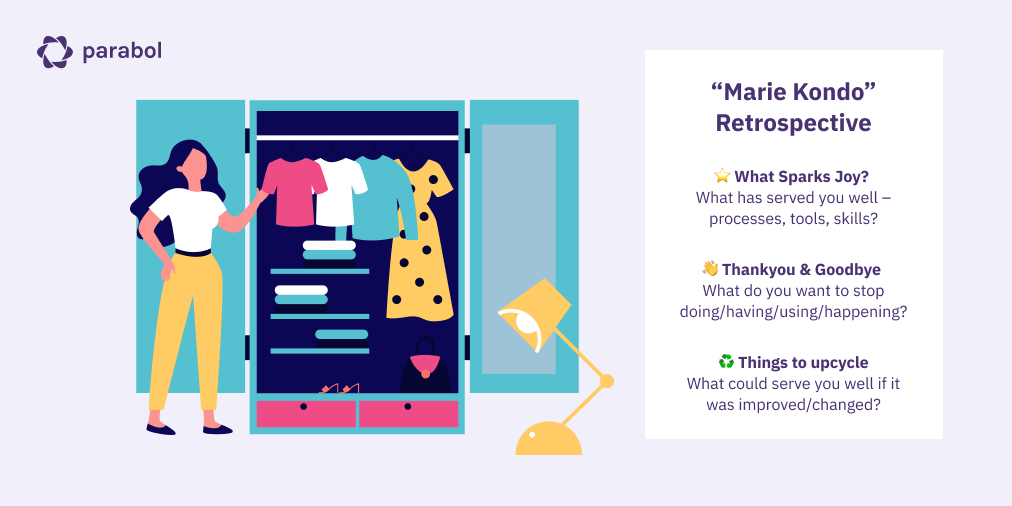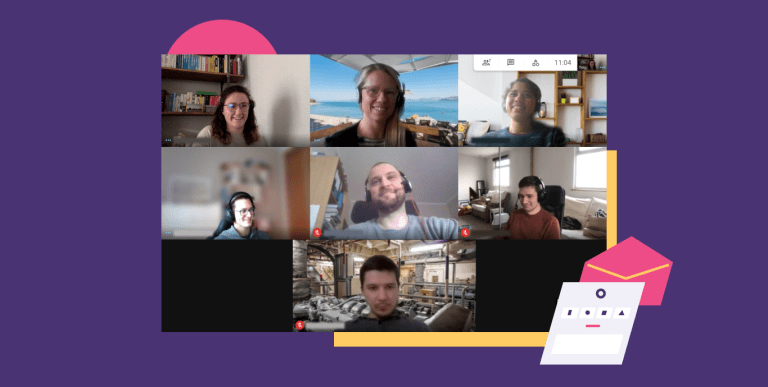How Secret Escapes Built Team Resilience with Parabol

The tourism industry is expected to take over $1 trillion in economic damage due to the covid-19 global pandemic. But that hasn’t stopped Product Manager Hege Otterholm and Secret Escapes – a British luxury travel brand – building and shipping new products.
When remote work became a necessity, the team were ready to make it a success thanks to the strong team practices they had developed, supported by Parabol – minimizing meta-discussions, enhancing inclusion and keeping meetings fresh and fun.

Facing down a global pandemic
Secret Escapes offers curated luxury holidays without the luxury price tag. That’s why they found themselves in the eye of the storm as the pandemic hit: with fewer folks traveling, there was less demand for their product.
But the team faced an additional challenge, as grounded flights and mandatory lockdowns forced their own team to work from home.
When we caught up, Hege explained her own pandemic story:
A few months back she was on a Secret Escapes vacation in Barcelona (“we had a rooftop pool overlooking the city”) when London announced mandatory quarantine for anyone returning home.
Not fancying that prospect much, Hege made her own secret escape to a friend’s organic farm in Italy and has been working from there ever since.
But working remotely was no big surprise for Hege and her team:
“Our team consists of a couple of people in London, one person in Spain, one person in India, another person in Poland and someone spending time in Taiwan – so we have essentially been doing remote work as a team for years. I think remote work has actually increased productivity. We’re working better now because there are just fewer distractions.”
We wanted to find out how using Parabol had helped Secret Escapes build resilience, weather the storm of the pandemic and work better together, remotely.
Efficient Remote Retrospectives that Focus on What’s Important
Almost before I can finish asking about the agile practices at Secret Escapes, Hege informs me that for her team: “it’s Scrum by the book”, which means two week sprints, daily standups and bi-weekly retrospectives.
And they take it seriously:
“We really do run our retros with intent every two weeks to capture what isn’t going well. We’re now on retrospective 29 in Parabol, and in my other team that I used to work in, they’re even further along. I am an early adopter type so whenever I see something that could potentially be useful or helpful, I try it out.”
 The Secret Escapes team running their retrospective meeting together
The Secret Escapes team running their retrospective meeting together
When working remotely, it can be really easy for team members to experience “Zoom fatigue” – especially when your days are peppered with video calls. That’s why Hege and her team like to keep their retrospectives short and sweet. Parabol saved the team time organizing and planning the retrospective:
“Personally, I don’t want to waste time. We have only one hour for our retrospectives. I like not having to waste time discussing what the structure and format should be. After using Parabol the format of retrospectives became much more set in stone, which is one of the reasons we like it so much. There was no more meta-discussion about what we should be doing in the retro – we could just get to it and save that time to discuss the meaty bits”
But making meetings more efficient is not only about making things go faster. It’s about getting the same or better results in a shorter period of time.
Built-in functionalities like retrospective phases and meeting summaries helped the team eliminate admin work and keep everyone present:
“One thing we love is that it’s really easy to use. And if you or a team member is not familiar with retros, it’s a very simple way of onboarding everyone. You don’t need to spend a lot of time thinking about how to do the retrospective and you get the instant benefit of a process without the pain of having to set it up yourself. Parabol is kind of like your secretary. It does the legwork for you, so you can focus on the content of the meeting rather than how to run the meeting itself.”
Using an online tool helped Hege’s team run effective retrospectives across borders and time-zones in a way that wouldn’t be possible in the office. Hege said:
“We don’t need to be able to get into a physical conference room and put sticky notes on walls to do our jobs as product managers”.
Using Parabol gave Secret Escapes a way of running retros that helped them stay resilient in the face of uncertainty. It was simply business as usual for the team and it allowed them to run more efficient and effective remote meetings that saved energy for the most important thing – building products that customers love.
Making Democratic Decisions with more Inclusive Processes
When working remotely, it can be easy for team members to feel distant from one another – personally and professionally. It’s easier for people to feel left out of decisions and sometimes it can be harder to have your voice heard.
Hege’s distributed team works hard to counter that:
“Because we’re focused on people dynamics I use Parabol more to catch if there’s any tension and there’s something that isn’t working. It’s typically because there’s either a missing process, something hasn’t been defined well enough, or isn’t fit for purpose. We use Parabol to flush out those things: identify where something is missing and what might we do to help that situation.”
We’ve all been in a situation where the loudest person in the room gets the most attention and wields the most influence.
Hege’s team found that they could use Parabol to get the whole team contributing in a way they felt comfortable.
And it helped all team members own the retrospective process by giving everyone the opportunity to facilitate.
“We have some colleagues who are quiet and tend not to speak in meetings. So we decided to take turns facilitating. That means our more quiet team members engage by managing the meeting. But more broadly, Parabol lets our introverted team members participate without talking. Being able to write down reflections helps everyone participate in their own way.”
And that sparked further ideas. Soon they found other ways that Parabol’s anonymous reflections, grouping and voting, could benefit the organisation by reducing bias, whether in brainstorming, product roadmap planning or in retrospectives:
“If it’s a regular meeting and everyone’s talking, extroverts are the ones whose suggestions usually get heard. And those are not necessarily the best ideas. I like it when everyone is able to contribute in their own style. Parabol helps us anywhere we need that democratization to happen”.
The team even found novel ways to use the tool beyond retrospectives – in product roadmap planning. Being able to ruthlessly prioritize by grouping common threads and voting in order of importance injected clarity into decision-making processes.
“My suggestion to my colleague was to identify the problems we want to solve with our new product before coming up with solutions. So I said what if you use Parabol? You go to your team, set up a meeting, and get everyone to reflect on what the problems we want to solve with the product, just as we do in retros. Then we can group those things and vote on them. And by the end of the meeting you have a prioritised list of problems you need the new product to solve for you. When you need the outcome of a meeting to be a prioritised list of something, you can use Parabol.”
Having a prioritized set of outcomes for a discussion, unweighted by leadership bias, helped the team make informed decisions about next steps or product directions.
Hege added:
“I’m a Nordic egalitarian person, so if I had to describe Parabol in three words it would be democratic, intuitive, and time-saving”.
Using Parabol helped the team include everyone’s perspective while working remotely – giving everyone the opportunity to have their voice heard in their own way.
Building Psychological Safety with a Distributed Team
High-performing teams make a habit of reviewing their work, solving problems, and iterating to improve. The team at Secret Escapes use their bi-weekly retrospective to tackle both technical work issues and psychological issues: “the two are connected – they can’t really be separated”, Hege says.
She describes her team as “mature, in the sense that we’ve been working together for two years already. So we’ve gone through the forming, storming, norming phases, and we’re now performing pretty consistently”. Retrospectives actually offer a way for teams to reach a performing stage much more quickly because they can iron out any teamwork or technical issues early:
“You’re not going to have an amazingly well-oiled team if they are not working together well in a psychological capacity, And I think being in a good mental place comes out of having done a project really well together”.
The retrospective is a time to celebrate successes and to figure out how to work together better to build a more fulfilling work culture.
One way the team build that psychological safety is by starting all meetings with a Parabol icebreaker:
“A retrospective is about team dynamics and people feeling comfortable sharing potentially difficult things with each other, so it’s really important that the atmosphere is set up right. If you’re the facilitator I would say set up an easy jokey atmosphere and the icebreakers are great for that”
At Secret Escapes a different team member also facilitates the meeting every two weeks. Which means he/she has the freedom to choose the template and icebreaker for each meeting.
This practice gives everyone an opportunity to be included and to set the tone.

Some team members even choose to build their own template for the team within Parabol.
“It’s a good idea to mix up the retro template from time to time. I made my own retrospective template: the Marie Kondo retrospective. It’s three columns: Things that spark joy (things we want to keep); things you want to thank and say goodbye to (things we should stop doing); and things we want to upcycle (things that can be improved)”.
Retrospective meetings are a time for the team to strengthen their connection with each other. So much of the retrospective is about recognising what the team have achieved and how to become even better. Building a positive atmosphere is the key to having those productive conversations.
The Future of Remote Collaboration
None of us can predict when the current pandemic will be over.
But for companies around the world it has offered a testing ground for new ways of working.
Hege’s team effectively worked remotely from the very start, and she confesses:
“For years I’ve been a proponent of remote working – so long as we have good wifi, it doesn’t really matter where in the world we are, we can still be a close-knit team that have fun and build great things.”
The pandemic has taken off the training wheels and forced teams to go fully remote. And it doesn’t look like everyone wants to go back to normal…
“Most employees are saying there’s no way I’m going back to the office 100%”
Parabol provided Secret Escapes with a more efficient, inclusive and fun way of coming together, celebrating success and making improvements. And that practice put them in a good position to make the most of the crisis.
Asking whether Hege plans to go back to the office herself, she says:
“I intend to work remotely for as long as I can”.
It looks like another secret escape might be on the cards covid-permitting!

